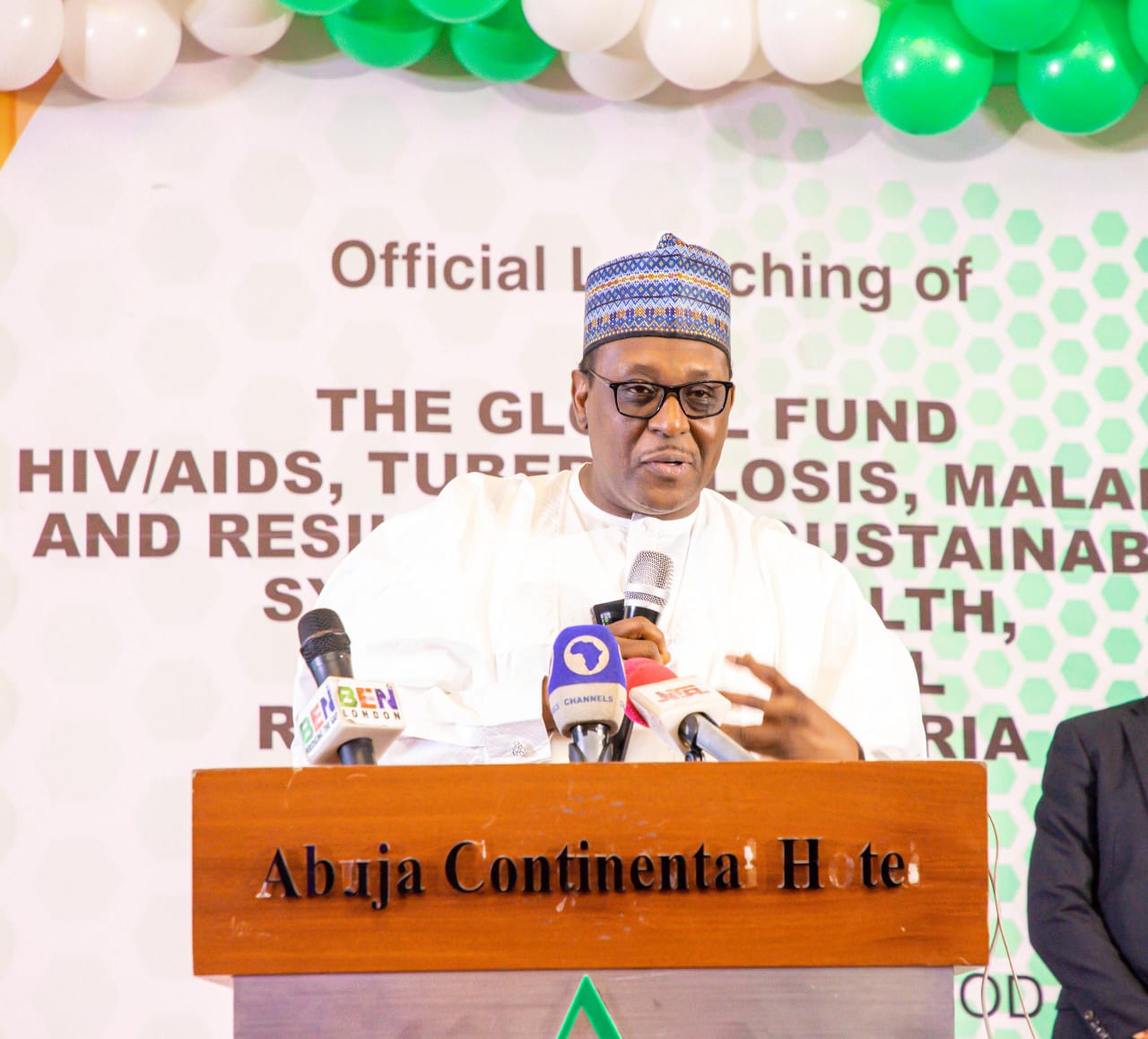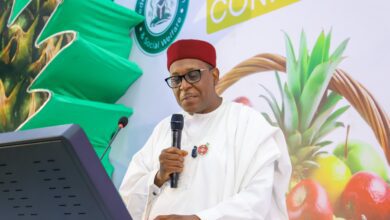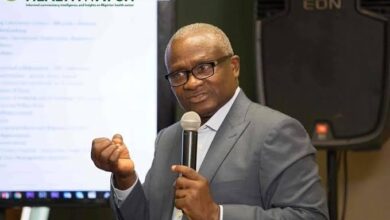Pate Assures Judicious Use Of $933m Global Fund Grant

The Coordinating Minister of Health and Social Welfare, Prof. Muhammad Pate has launched the Grant Cycle 7 (GC7) 2024-2026 implementation period in line with President Bola Ahmed Tinubu’s Health Sector Renewal Investment Initiative.
Director Information of the ministry, Patricia Deworitshe disclosed this in a statement issued on Wednesday, January 24, 2024.
Speaking at the official launch of Global Fund for HIV/AIDS, Tuberculosis and Malaria recently held at the Abuja Continental Hotel, Abuja, the Minister stated that the allocated resources of USD 933million to Nigeria for the 2024-2026 implementation period will help mitigate the impact of HIV/AIDS, Tuberculosis and Malaria.
Pate said that, “in approving the sector wide programme, the president essentially directed that the health outcomes of Nigerians should be better than what it is and that we should all collaborate, Federal Government with state government along side development partners”.
While assuring that the resources donated would be used judiciously, the Minister presented the Global Fund grant to recipients which includes:
National Agency for the Control of AIDS, $10,663,394.00 (HIV/AIDS), National AIDS and STDs Control Programme (NASCP)-FMOH, $30,038,555.00 (HIV/AIDS).
National Tuberculosis, Leprosy & Buruli Ulcer Control Programme (NTBLCP)-FMOH, $122,390,772.00 (Tuberculosis)
Institute for Human Virology Nigeria (IHVN), $340,095,438.00 (HIV/TB (C-Grant) National Malaria Elimination Programme (NMEP)-FMOH, $80,877,025.00 (Malaria), Catholic Relief Services (CRS), $315, 933,900.00 (Malaria).
National Tuberculosis, Leprosy & Buruli Ulcer Control Programme- FMOH, $42,557,406.00 (RSSH), Lagos State Ministry of Health, 4,100,440.00 (RSSH).
According to Pate, the expected results which all the principal recipients were committing to, was to achieve the 95, 95, 95 by 2025, notable improvement in the treatment of HIV/AIDS, Tuberculosis and Malaria.
He noted the commitment of the Federal Government in advancing improvement in the health of the population along the four pillars which are evidenced in governance, promoting transparency and accountability, focusing on the population health outcomes, fixing the primary health care system, improving maternal and child health through which would reduce mother to child transmission, fixing infrastructure, unlocking the healthcare value chain and health security, in terms of laboratory infrastructure, building the public health workforce, the surveillance systems and dealing with infectious disease.
He urged the Global Fund and the principal recipients to patronise local manufacturers in order to unlock the value chain, stating that there should be trust amongst the key players while States should be diligent in the use of funds meant to help the poorest of vulnerable population of the country.
Appreciating the efforts of Global Funds, Country Coordinating Mechanism (CCM) Nigeria and other development partners, he mentioned that strategies were in place to enable citizens to see the humongous resources that were coming into Nigeria, and what they were being used for and whether they were responding to their needs, and to bring up any issues that stand in the way of execution.
Chairman House Committee on HIV/AIDS, Tuberculosis and Malaria (ATM), Amobi Ogah in his goodwill message assured of the Committee’s resolve to oversight every fund that had been budgeted for the fight against HIV/AIDS, Tuberculosis and Malaria in the country to ensure that every kobo spent was accounted for.
Permanent Secretary Federal Ministry of Health, Daju Kachollom said the increase in the HIV, TB and malaria grants in Cycle 7, will further address the critical service coverage gaps among pregnant women, children, key populations and adolescents.






